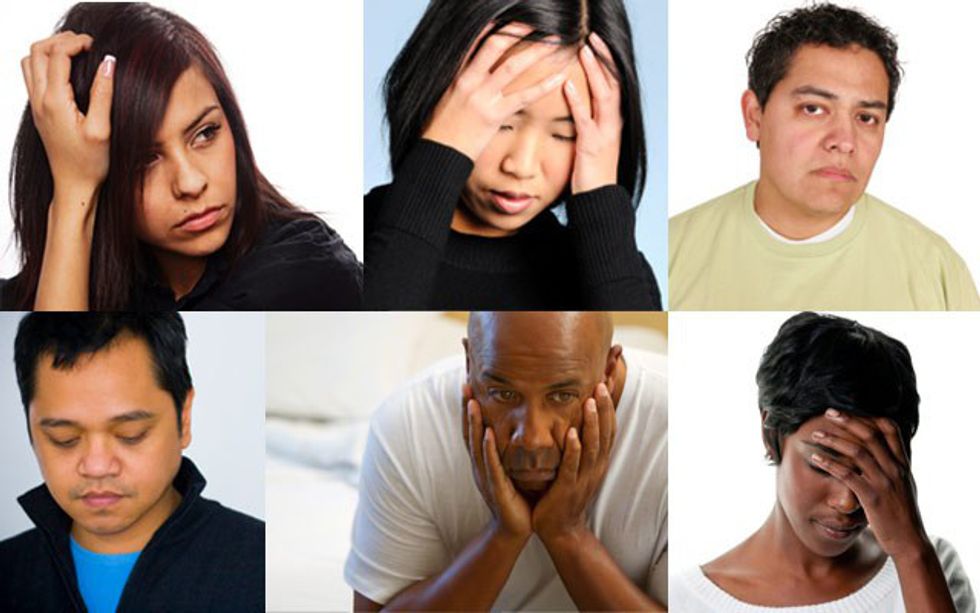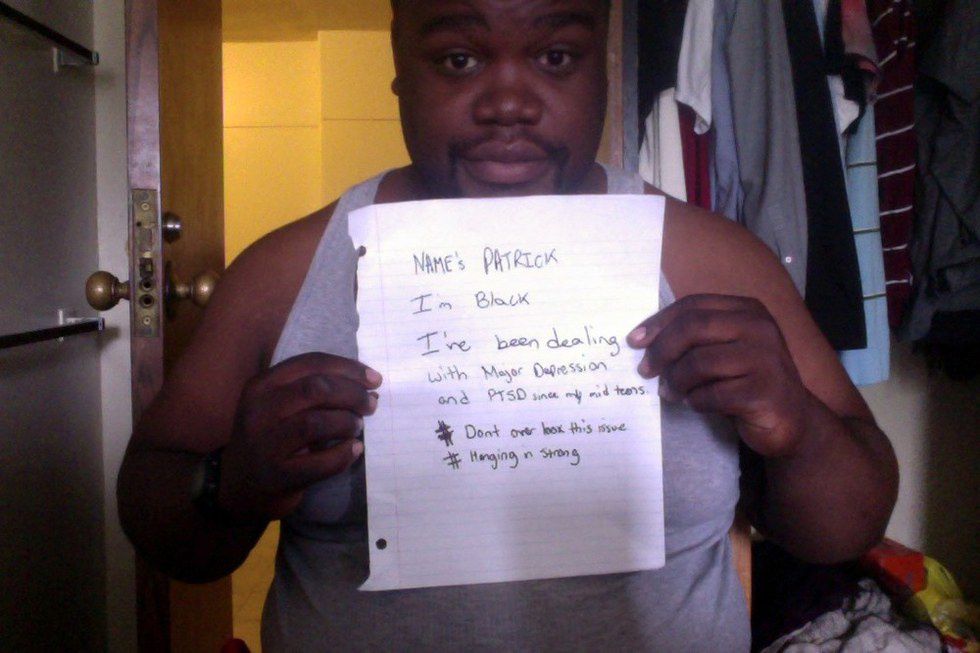Our racist American culture loosely conflates depression with sadness. Sadness is a temporary human emotion. Depression is a permanent mental illness that affects a person’s train of thought.
While depression is commonly recognized in white people, but still overlooked in American society, mental health for a person of color is disregarded, invalidated, ignored, labeled "fictional" — however you’d describe it.
We need to keep this in mind: Our mental illnesses are not our faults.
From dealing with a mental illness (examples: depression, schizophrenia, post-traumatic stress disorder, bipolar disorder, paranoid personality, psychosis and multiple personality disorder) we also need to understand and remind ourselves that our willpower alone is far from enough to make our mental illnesses disappear.
People of color, collectively, are always in pain, whether we allow our mental illnesses to afflict us or not. Even when we might think or say everything is okay, a lot of us are always plagued by problems such as social inequality, white supremacist capitalist patriarchy, racist dehumanization, racist objectification and social stratification.
But what does feeling “OK” mean when you’re a person of color living in a racist society?
National surveys say people recorded a survey of black men who cope with clinical depression. The Office of Minority Health of Mental Health America revealed that 40 percent of black men deny having depression, 31 percent refuse to accept treatment, 29 percent have no income to receive treatment and 38 percent are embarrassed and ashamed to admit they have depression.
In addition, studies showed that 16 percent of white adults received treatment for mental health concerns. Blacks have received 8.7 percent in 2007-2008. Other studies show that suicide rates of Indian youth are three times higher than that of the general population. Additionally, children of Asian, Latin-American and Caribbean descent who deal with perceived discrimination is linked to mental health symptoms such as hypertension, anxiety, traumatic flashbacks, suicidal thoughts, excessive self-blame, guilt, and hypersensitivity.
In our society, a lot of us have an inclination to victim blame others for their mental illnesses, but do any of us ever tell one another that it’s okay for us to feel the way we feel?
It is impossible to rely on willpower to psychologically force our problems away. We shouldn’t be condemned for having mental illnesses. We shouldn’t be dismissed as lesser human beings for having mental illnesses. Again, none of us asked for our problems.



























